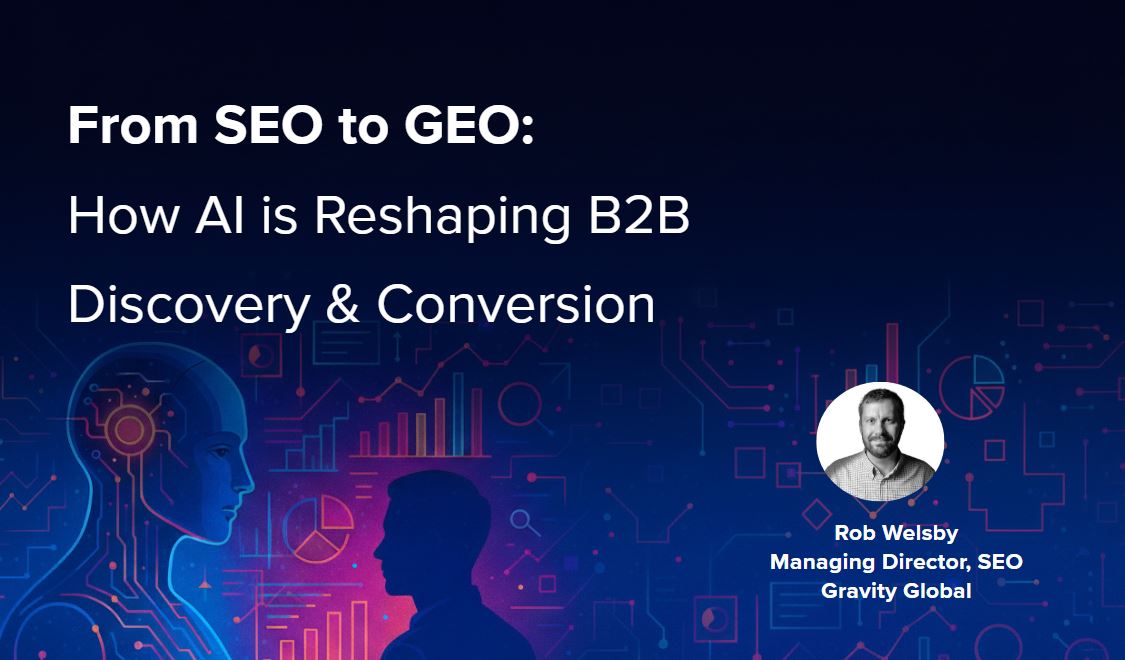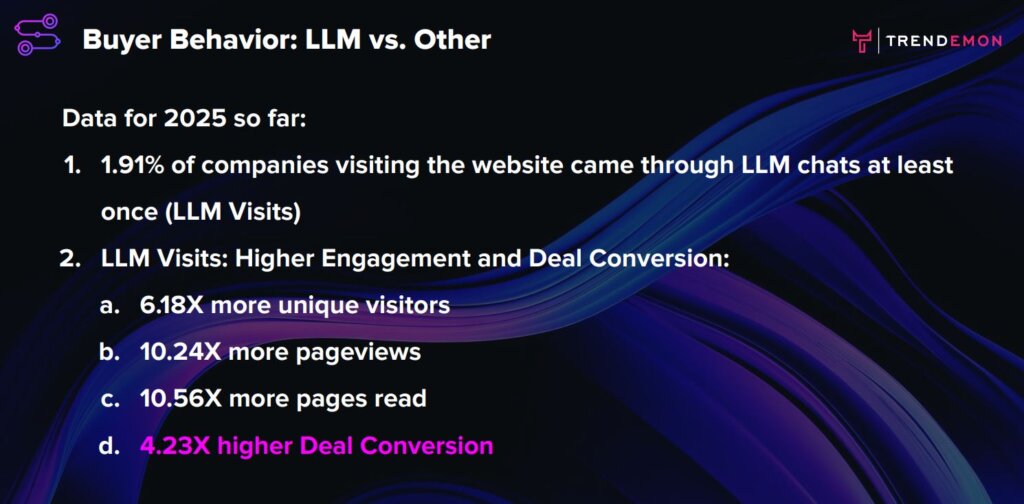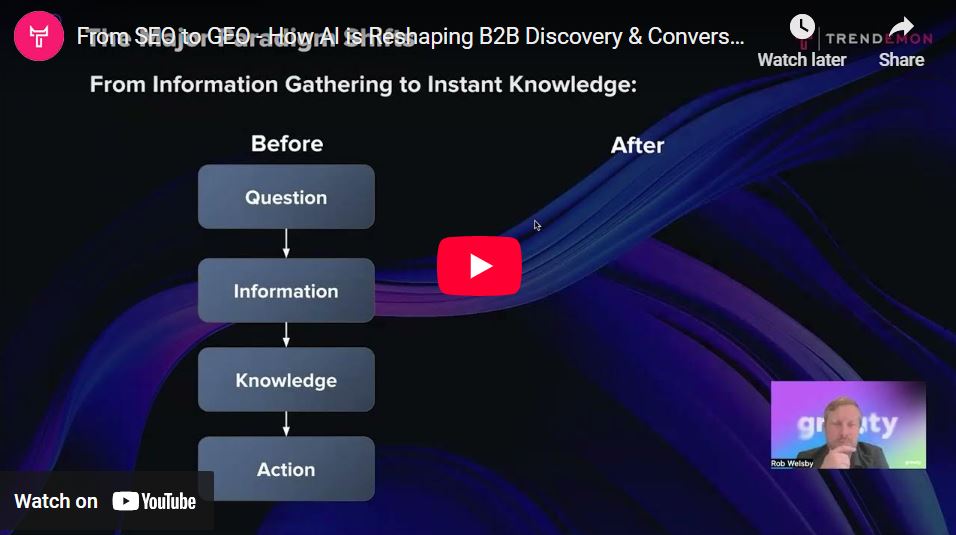From SEO to GEO: How AI is Reshaping B2B Discovery & Conversion

The way B2B buyers discover and evaluate solutions is changing faster than ever before. Traditional SEO, once the cornerstone of digital visibility, is giving way to a new paradigm: Generative Engine Optimization (GEO). Instead of simply delivering lists of links, AI-powered platforms are reshaping the buyer journey into conversations, answers, and contextual recommendations.
In our recent webinar with Rob Welsby from Gravity Global, we unpacked the data, strategy shifts, and tactical considerations that every marketer should understand as AI search becomes a dominant force in discovery and conversion.
The Data: What’s Really Happening in Traffic Trends
The statistics paint a striking picture. Organic traffic from search engines is steadily declining, while AI platforms are capturing more user attention. Today, around 60% of searches result in zero clicks, as users get answers directly from the LLM chat interface rather than visiting a website.
At the same time, the quality of AI-driven traffic is proving highly valuable. Visitors referred through LLM chats show higher engagement and conversion rates compared to traditional search referrals. These users often arrive with pre-formed perceptions of a brand, influenced by what AI systems already “know” about the company. This creates both opportunities and risks: if your brand is represented accurately, you can benefit from warmer, more informed leads—but if not, you may be fighting against misconceptions before the first click.

The Strategy: Rethinking the Role of Your Website
The role of the website is evolving. Historically, it functioned as the final destination—a place where visitors landed, explored, and converted. In the GEO era, websites also serve as critical data sources for AI platforms.
Generative models continuously crawl and interpret web content, building knowledge sets that inform the responses they provide to users. This means your site is not just nurturing the visitors who land on it—it is also training the systems that may or may not recommend you in the first place.
Foundational principles of SEO still apply: relevance, trustworthiness, and technical performance matter as much as ever. But the stakes are higher. If your site is slow, poorly structured, or lacking authoritative content, you risk being overlooked not just in search results but in AI-generated answers across multiple platforms.
The Tactics: Starting Your GEO Playbook
There are practical steps you can take now to prepare your brand for the AI-powered future of discovery:
- Audit your presence in AI tools – Ask ChatGPT, Google’s AI mode, or other platforms what they know about your brand. Compare how you’re positioned against competitors and look for inaccuracies or gaps.
- Think like your audience – Test prompts using different buyer personas to see how context changes the AI’s responses. This will help you uncover blind spots in your messaging.
- Track performance in AI ecosystems – Beyond traditional SEO metrics, start monitoring inclusion rates, accuracy of brand mentions, and whether you’re cited as a source.
- Prepare your site for AI agents – These bots don’t just crawl like search engines—they interpret. Ensuring your content is structured, current, and accessible is essential for shaping how AI platforms represent your brand.
The shift from SEO to GEO is complex, but also full of opportunity for brands that adapt quickly.
Watch full session and Download our GEO Playbook
📥 Download our exclusive GEO playbook and learn how to make your website ready for the AI Search era.
▶️ Watch the full recording to explore additional tactics and get more practical tips:
